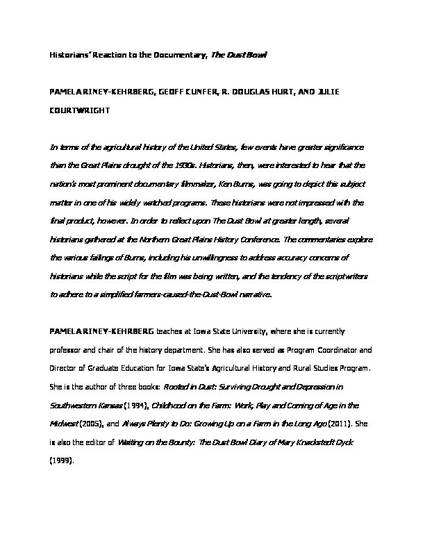
Historical documentaries have a wider audience and often a greater visceral impact than written histories. They frequently resonate deeply with viewers through the use of images, first-person narratives, and evocative filming. To wield such emotional power responsibly demands great attention to accuracy and nuance. In the fall of 2013 these four historians met at the Northern Great Plains History Conference to discuss Ken Burns's latest work on the Dust Bowl. Each of the panelists presents a different critique of the documentary. By looking at the piece's sources, its music, its narration, and, most importantly, its message, they concluded that the film presents a one-dimensional, often inaccurate, over dramatization of the hardships experienced on the Great Plains in the depths of the Great Depression. Moreover, Burns ignores much of the recent scholarship on the Dust Bowl in the documentary, actively choosing a simplified narrative over a more realistic, complex account.
Available at: http://works.bepress.com/pamela_riney-kehrberg/29/

This article is published as Riney-Kehrberg, Pamela, Geoff Cunfer, R. Douglas Hurt, and Julie Courtwright. "Historians' reaction to the documentary, The Dust Bowl." Agricultural History 88, no. 2 (2014): 262-288. 10.3098/ah.2014.88.2.262. Posted with permission.